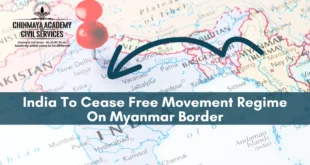Last week, German authorities arrested eight men in the State of Saxony who were part of a far-right “terrorist” ring, called ‘Revolution Chemnitz’. Chemnitz, the largest city in Saxony, was recently in the news when hundreds of neo-Nazis took out a protests against refugees and immigrants. According to police, the group had detailed plans to conduct a terrorist attack on October 3, the Day of Unity. They had also planned to attack migrants, political dissidents and journalists. The Süddeutsche Zeitung reported that ‘Revolution Chemnitz’ wanted to kill more people than what the National Socialist Underground (NSU), Germany’s infamous neo-Nazi terrorist group that murdered 10 people — nine migrants and one police woman — between 2000 and 2007. The extremists tried to get firearms, but they were unsuccessful. Like other parts of eastern Germany, Saxony is also known for right-wing extremism. At the same time, far-right parties like the Alternative for Germany (AfD) are popular in the State. “It’s obvious that the approval ratings for extreme political thought and the AfD are higher [in eastern Germany] than elsewhere,” said Franziska Giffey, a Social Democrat politician and Minister of Family. Harsh approach Other leading politicians called for a harsh approach towards right-wing extremists. However, many believe the German state is “blind in the right eye” when it comes to dealing with right-wing extremism. Even now, many questions regarding the NSU terrorist group remain unanswered. Last July, Beate Zschäpe, the last living culprit of the “terror trio”, faced a life sentence by Munich court. But many observers still believe that the case is not fully solved. Zschäpe and her dead accomplices, Uwe Böhnhardt and Uwe Mundlos, were not able to spread that much terror by themselves, they say. During the years-long court proceedings, documents and witnesses vanished. It is well-known that many German neo-Nazis acted as double-agents, serving both the Verfassungsschutz, the domestic intelligence unit, and local extremist groups at the same time. . “Politics and media don’t really focus on right-wing extremism. Too often, they prefer to solely talk about the ‘bad Muslim terrorists’. They tend to externalise all these problems, but you cannot do that with neo-Nazism,” said Serhat Yücel, an immigrant student from the city of Essen. “For many immigrants, the NSU is the best example that the German state is blind in the right eye. There are still so many unanswered questions and everyone knows that state institutions were somehow involved, but nobody cares,” said Karaman, who has Turkish and Kurdish roots. When the NSU murders took place, the German police started to call the atrocities “döner murders”, referring to Turkish kebab. Back then, the belief was widespread that migrant groups were killing each other. Later, when the neo-Nazis were unmasked as the culprits, this behaviour was heavily criticised and described as racist.
Check Also
India- Russia Relationship
India and Russia appear eager to reestablish their relations in the modern world. The significant …
 Chinmaya IAS Academy – Current Affairs Chinmaya IAS Academy – Current Affairs
Chinmaya IAS Academy – Current Affairs Chinmaya IAS Academy – Current Affairs



